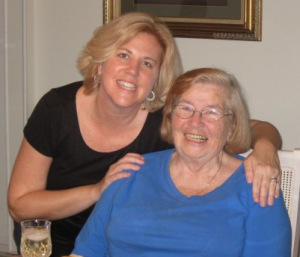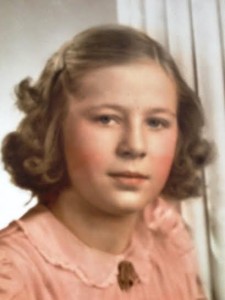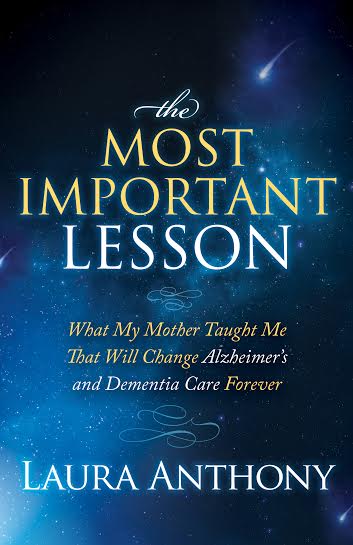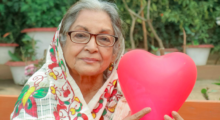Today, SevenPonds speaks with Laura Anthony, a public health professional living in Bradenton, Florida. Laura earned her Bachelor’s in Health Science from SUNY Cortland in 1985, and her Master’s in Public Health from the University of North Carolina at Chapel Hill in 1988. Ever since then, Laura has been passionate about improving the quality of care for patients and their families in young and old age. The experience of caring for her mother with Alzheimer’s inspired her new book, The Most Important Lesson: What My Mother Taught Me That Will Change Alzheimer’s and Dementia Care Forever. Far from a burden or a hindrance, Laura talks to SevenPonds about how the relationship between caretaker and Alzheimer’s patient can be one of profound mutual gain.
MaryFrances: You’ve just come out with a new book. Could you discuss your work as a health care professional, and your transition into writing?
Laura: Since I was a young girl, I knew I would be in the healthcare arena. Not necessarily [for] the clinical aspect, but [to] help people get the care they need. [It’s been a] privilege to work in many different aspects of the industry, including clinical research, hospitals, insurance, healthcare technology and home health. [It’s] only been in the last several years that I began sharing my thoughts and experiences through my writing and have found great joy and comfort in doing so.
MaryFrances: What would you say are some common misconceptions about Alzheimer’s?
Laura: The most common misconceptions about Alzheimer’s patients are that they are all the same – that they wander, are incoherent and cannot communicate with others.
MaryFrances: What are the “communication strategies” for those who have Alzheimer’s that you discuss in your book, The Most Important Lesson: What My Mother Taught Me That Will Change Alzheimer’s and Dementia Care Forever?
Laura: The key communication strategy I focus on is to take the time to ask dementia patients [about] soul searching, [or what I call] “life wisdom” questions. [It’s] not a traditional approach that you see in caregiving or dementia literature. Most believe that if someone cannot remember simple facts then they certainly wouldn’t be able to answer a deeper question regarding life. But I found that many are able and it can significantly impact not just the patient but the caregiver as well.
“[It’s] not a traditional approach that you see in caregiving or dementia literature.”
–Laura Anthony
When you are asking a “life wisdom” question [to someone with Alzheimer’s], you are seeking wisdom from an individual. The underlying psychological message to that person is, “What you have to say is important and I value you and your perspective.”
MaryFrances: But what if someone is in the deepest stages of Alzheimer’s and dementia?
Laura: Even if your loved one is in the very late stages of the disease and you do not expect them to answer—ask. See what happens. No two dementia patients are the same. Do not underestimate the power and love that asking a life wisdom question creates.
MaryFrances: Could you explain more about your definition of “wisdom,” and how it benefited you as a caregiver?
Laura: Wisdom is built by learning and growing through life experiences [from which] one develops their inner core beliefs and truths – [how] they perceive the world. Many believe that if you can no longer remember the experience that created [such] wisdom, then it no longer exists. My world changed dramatically when I realized this was not true.
My mother became my caregiver of life wisdom. Seeing [her] as a source of life wisdom allowed me to refocus, to slow down and view her differently [when she had Alzheimer’s]. Simply by asking her questions, it showed her how much she meant to me, and that in turn provided me with a greater sense of peace and love for what she had to say was meaningful.
Laura’s 3 Tips for caring for a loved one with Alzheimer’s:
1. Seek new approaches to interacting with your loved one.
2. Don’t let your caregiving situation reach its breaking point.
3. Take care of yourself.
There was verbal and non-verbal communication that occurred during these conversations. It helped me through the grieving process and provided me with greater meaning and purpose in my own life.
MaryFrances: What’s the best way to ask a “wisdom” question and receive a coherent reply?
Laura: Choose a time of day when the patient is calm, well rested and content, [such as] following breakfast. Sit quietly in a familiar setting, [and] speak in a soft voice, as dementia patients will often take on the demeanor of the people around them. Ask the question in a thoughtful and loving way – make it part of a conversation, and not “a task” to be completed. Explain how you value them and what they have to say. Then ask the question, [and allow] plenty of time for your loved one to answer.
MaryFrances: There are moments when it feels like a loved one with Alzheimer’s is a completely different person – as if their identity has degenerated. What are some of the things family members can do to comfort themselves and their loved one during these moments?
Laura: I would pay close attention to what things may have triggered the change in their personality or demeanor. Were they overtired, overstimulated, hungry, or bored? Many times one can’t find comfort, and might create distractions [with] music, walk outside, or encourage their loved one to eat or lay down.
If I was able, I would remove myself from the situation if only for a few moments to breathe deeply and calm down. Caregivers are notorious for not taking care of themselves, which can lead to their own health crises.
MaryFrances: Thank you, Laura.
Laura: Thank you.
Related SevenPonds Articles:
- A touching Alzheimer’s awareness campaign by Domenico Liberti
- Cadmona Hall: What Alzheimer’s Means for Family and Friends
- The Photography of Cathy Greenblat: Seeing Alzheimer’s Differently

 What’s the Link Between Wisdom & Alzheimer’s in Old Age? An Interview with Laura Anthony
What’s the Link Between Wisdom & Alzheimer’s in Old Age? An Interview with Laura Anthony





 Having an Estate Plan Is Essential – So Is Discussing It With Your Children
Having an Estate Plan Is Essential – So Is Discussing It With Your Children

 “Summons” by Aurora Levins Morales
“Summons” by Aurora Levins Morales














